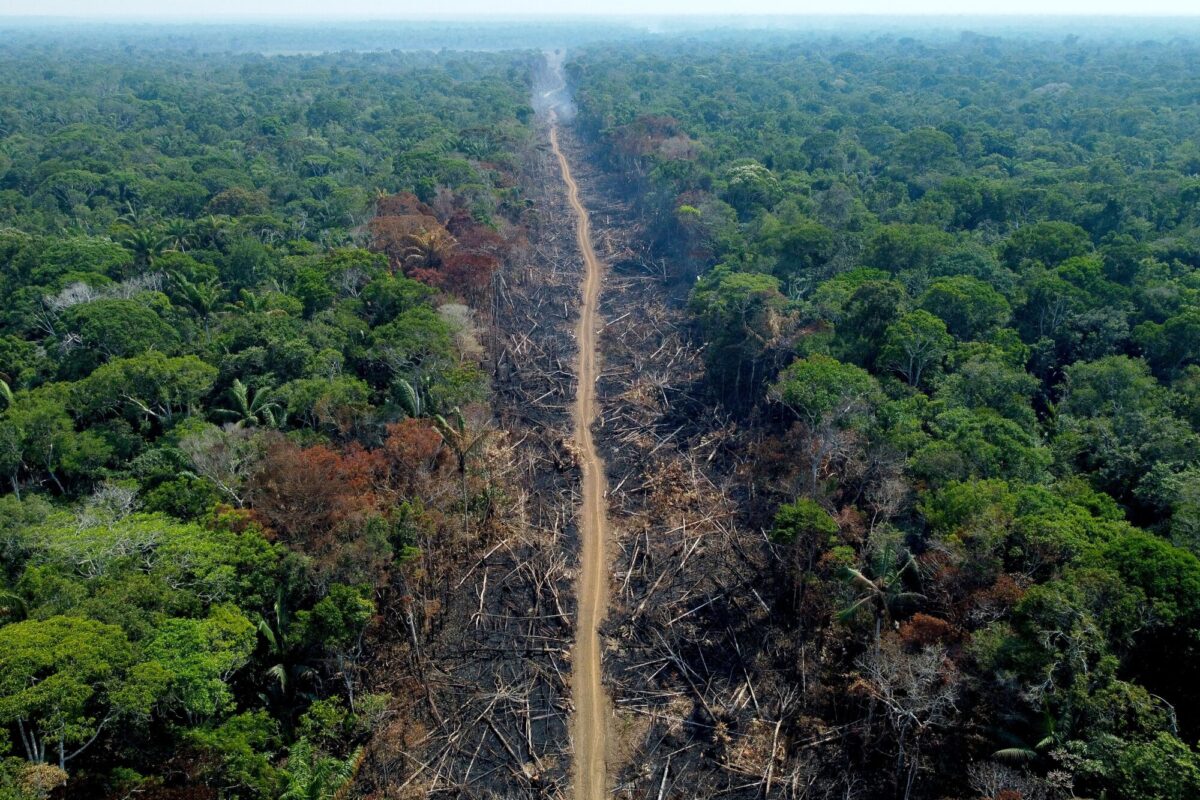As the United States election season comes to a close, it can sometimes be easy to forget that there are countries all over the world that are also casting their ballots for new leaders. One such country, Brazil, celebrated victory when former president leftist Luiz Inácio Lula da Silva was reelected, defeating unpopular far-right President Jair Bolsonaro. With this change in power, many are hailing the narrow win for da Silva as a victory in the fight against global climate change.
Luiz Inácio Lula da Silva (commonly known as “Lula”), is a member of the Brazilian Worker’s Party. He was elected president in 2002 and 2006 and was succeeded by Dilma Rousseff of the same party. Rouseff was elected and reelected in 2010 and 2014, but was impeached and removed from office in 2016 on charges of administrative misconduct. Her vice president, Michele Temer of the Brazilian Centrist Party, finished the rest of Rousseff’s term.
In 2017, Lula was arrested under charges of corruption in part of Operation Car Wash. The operation, run by the Federal Police of Brazil, jailed many high-ranking politicians in Brazil, including Lula and former President Temer after he left office. Because of his imprisonment, Lula was unable to run in the 2018 Presidential Election despite having a wide lead in the polls. The Workers Party replaced Lula with another candidate, the former mayor of São Paulo, Fernando Haddad. Not having the level of popularity and name recognition as Lula, Haddad lost the 2018 election to Jair Bolsonaro of the Social Liberal Party.
As the home of the Amazon Rainforest, Brazil plays a major role in regulating the global climate. This rainforest is known as a “carbon sink,” a label given to many vast regions of trees, such as the Amazon. Carbon sinks absorb the carbon dioxide from the atmosphere and release oxygen through the process of photosynthesis. Since the levels of greenhouse gasses in the atmosphere are increasing at an alarming rate, the necessity of “carbon sinks,” like the Amazon, is evident.
The history of Amazon Rainforest deforestation begins back in the 1960s. In 1964, a military dictatorship took control of Brazil. Seeing the open land of the Amazon as a threat to foreign invasion, the new government incentivized citizens to relocate further into the Amazon. In 1971, officials announced the construction of the trans-Amazonian highway, a 2,500-mile-long thoroughfare aimed at reducing poverty in the northeast region of the country. Hundreds of thousands flocked to land around the new route, with generals calling it “land without men for men without land.” The 1970s and 80s saw an escalation of deforestation as many infrastructure projects and land subsidies were established in the forest. With little oversight or regulation, land abuse caused excess deforestation beyond what was needed. By 1988, satellite imagery showed that the Amazon had lost 10% of its original canopy, and by 1995, more than 11,000 square miles of forest were cleared, the most in any year to date.
Along with the criticism he received from climate activists, President Bolsonaro also struggled to grapple with the height of the COVID-19 pandemic in 2020, with his country being a major hot spot for the virus. With the pandemic crisis grabbing most bureaucratic attention, it provided the perfect cover for illegal logging and mining operations within the rainforest. The lack of response by Bolsonaro was seen as his “tacit approval” of deforestation before he was forced by public scrutiny to send armed forces into the area. By the spring of 2020, deforestation increased an astonishing 55% compared to the same period the previous year. In April alone, destruction was up 64% compared to the previous April. Overall, deforestation rose to a fifteen-year high under Bolsonaro’s administration.
After the run-off election on October 31, Lula said during his victory speech in São Paulo that “Brazil is ready to retake its leadership in the fight against the climate crisis,” and, “Brazil and the planet need a living Amazon.” Along with vowing to crack down on illegal logging, gold mining, and land grabbing, Lula also promised to deliver an overhaul of the country’s environmental policy via a plan similar in concept to the Green New Deal proposed in the United States. However, Bolsonaro’s allies still control Congress, making the chances of passing such a bill slim. The curbing of deforestation in the country is key in the planet’s fight to reach the goals of the Paris Agreement, which aims to lower the average global temperature by 1.5℃ to limit existential damage caused by climate change to humans and ecosystems alike.
Despite not taking office until January 1, President-Elect Lula established a group of representatives, including himself, that traveled to the COP27 United Nations summit in Egypt on November 6, and was received with a raucous welcome upon arrival. While traveling home from the summit, Lula met with President Marcelo Rebelo de Sousa of Portugal and President Filipe Nyusi of Mozambique in the Belem presidential palace in Lisbon on November 18. Since Brazil’s relationship with many foreign countries frayed while Bolsonaro was in power, it was necessary for Lula to explain to the foreign leaders that “Brazil is back,” and would not return to any of the environmentally dangerous practices performed by the Bolsonaro administration.
Lula’s victory is widely regarded as a “gigantic win against fascism” among his supporters, both at home in Brazil and globally. At a point in history where it seems fascism is on the rise, it is easily seen how the power of just one person can cause chaos and destruction that will last for decades, if not centuries to come. In a similar yet more removed example, the appointment of three conservative justices to the United States Supreme Court by former President Donald Trump resulted in a 6-3 conservative supermajority that is likely going to last for decades. Five months ago, this very majority stripped the United States Environmental Protection Agency of its right to regulate the amount of pollution emitted into the atmosphere. Based on the actions of both of these far-right leaders, it is evident now more than ever how important it is to elect officials who believe in, and vow to fight the climate crisis to the bitter end.
Sources
Chow, Denise. “Why Brazil’s Election Is a Major Victory in the Fight against Climate Change.” NBCNews.com, NBCUniversal News Group, 31 Oct. 2022, https://www.nbcnews.com/science/environment/brazils-election-major-victory-fight-clim ate-change-rcna54860.
Demony, Catarina. “With a ‘Back to Normality’ Message, Brazil’s Lula Seeks to Improve Foreign Ties.” Reuters, Thomson Reuters, 18 Nov. 2022, https://www.reuters.com/world/americas/cop27-portugal-brazils-lula-mission-improve-fo reign-ties-2022-11-18/.
Renwick, Danielle, et al. “Deforestation in the Amazon.” Council on Foreign Relations, Council on Foreign Relations, 1 July 2016, https://www.cfr.org/amazon-deforestation/#/en/section5.
Roberton, Jamie, and Lorand Bodo. “Deforestation of the Amazon Has Soared under Cover of the Coronavirus.” NBCNews.com, NBCUniversal News Group, 11 May 2020, https://www.nbcnews.com/science/environment/deforestation-amazon-has-soared-under cover-coronavirus-n1204451.
Spring, Jake. “Lula Cheered for New Climate Policies after Brazil Election.” Reuters, Thomson Reuters, 31 Oct. 2022, https://www.reuters.com/world/americas/lula-cheered-new-climate-policies-after-brazil-e lection-2022-10-31/.

